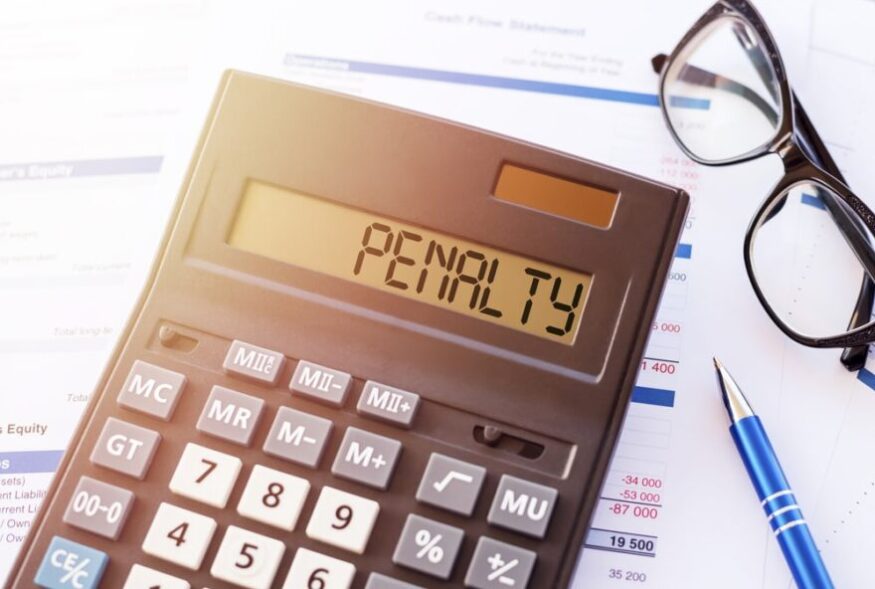
Owing money to the IRS can be very stressful, especially when penalties are added to your tax debt. Whether you filed your return late, missed a payment deadline, or failed to deposit payroll taxes on time, the IRS often assesses penalties that can make your situation worse. Fortunately, you may qualify for the IRS’s First-Time Penalty Abatement (FTA) program.
Key Takeaways
- The First-Time Penalty Abatement program can remove IRS penalties for late filing, late payment, or missed deposits if you have a clean recent history.
- You qualify if you were not previously required to file, or had no delinquency penalties in the past three years (excluding estimated tax penalties).
- FTA can eliminate both the penalty and related interest.
- Relief applies to a single tax period; other penalty years may require “reasonable cause.”
- To request, you can call the IRS or file Form 843 by mail.
- Professional help may improve your chances and ensure other penalty relief options are explored.
What Is First‑Time Penalty Abatement?
The IRS allows taxpayers with a clean compliance record to request first-time penalty relief under their FTA policy. FTA covers penalties such as Failure to File (FTF), Failure to Pay (FTP), and Failure to Deposit (FTD).
Although this relief is called a “first-time” waiver, the IRS does not require that you have no prior issues with late filing or late payment. The two key factors are either: (1) that you were not previously required to file a return, or (2) delinquency penalties ( except estimated tax penalties) were not assessed against you in the three prior years or were removed for reasons other than prior FTA relief.
FTA applies regardless of the penalty size and can remove both the penalty and related interest. However, interest accrues until the tax balance is fully paid. You can even apply before paying off the tax, but penalties may still apply and continue to accrue until full payment is made. Once you pay, the IRS can abate any penalties that accrued after the initial penalty removal.
First-Time Penalty Abatement Scenarios
To qualify for first-time penalty abatement, you must have filed all required tax returns for the three years prior to the year you’re requesting abatement.
Example 1: ABC Corp. was formed in 2021 and filed its corporate tax return late, resulting in an assessment of a late filing penalty. Since ABC was not required to file a corporate return before 2021, it qualifies for first-time abatement.
Example 2: Cayden files his 2018 tax return late and has a balance due. The IRS assesses the FTF and FTP penalties for 2018. After reviewing his 2015-2017 IRS account transcripts, it is determined that there were no penalties for those years. Cayden qualifies for first-time penalty abatement and can request abatement of the FTF and FTP penalties.
Penalty abatement under FTA only applies to a single tax period for a taxpayer. If a request for abatement of penalties is under consideration for two or more periods, and the earliest period meets FTA criteria, penalty relief pursuant to FTA will apply only to the earliest period, and not for both periods. However, a taxpayer may request penalty abatement for subsequent periods based on “reasonable cause.”
Example 3: Lissette submitted her tax returns for 2018 and 2019 timely, but owed a balance for those years. She was assessed an FTP and an estimated tax penalty for both years. She filed and paid on time for the years 2015 through 2017. She qualifies for abatement of the FTP penalties for 2018, as no penalties other than estimated tax penalties were assessed during the prior three-year period. However, 2019 does not meet the three-year rule and thus does not qualify for FTA. The IRS will consider abatement of the 2019 penalties if Lissette can establish reasonable cause.
How to Request First‑Time Penalty Abatement
You have two main options for requesting FTA:
- By Phone –If you have a notice or letter from the IRS, call the toll‑free number shown at the top right and request First‑Time Abatement. The IRS will automatically review your compliance history and notify you on the call if relief is granted. If the penalty is large enough, the IRS may tell you to use the second option to request FTA.
- By Mail-You can submit a signed letter or use Form 843—Claim for Refund and Request for Abatement to request FTA.
Get Help With IRS Penalty Relief
If you seek relief from IRS tax penalties, call the tax professionals at East Coast Tax Consulting for a free consultation. We will review your situation and if you qualify, request abatement of IRS penalties under FTA or due to reasonable cause. Let us help you obtain penalty relief, just as we have helped many other taxpayers.

